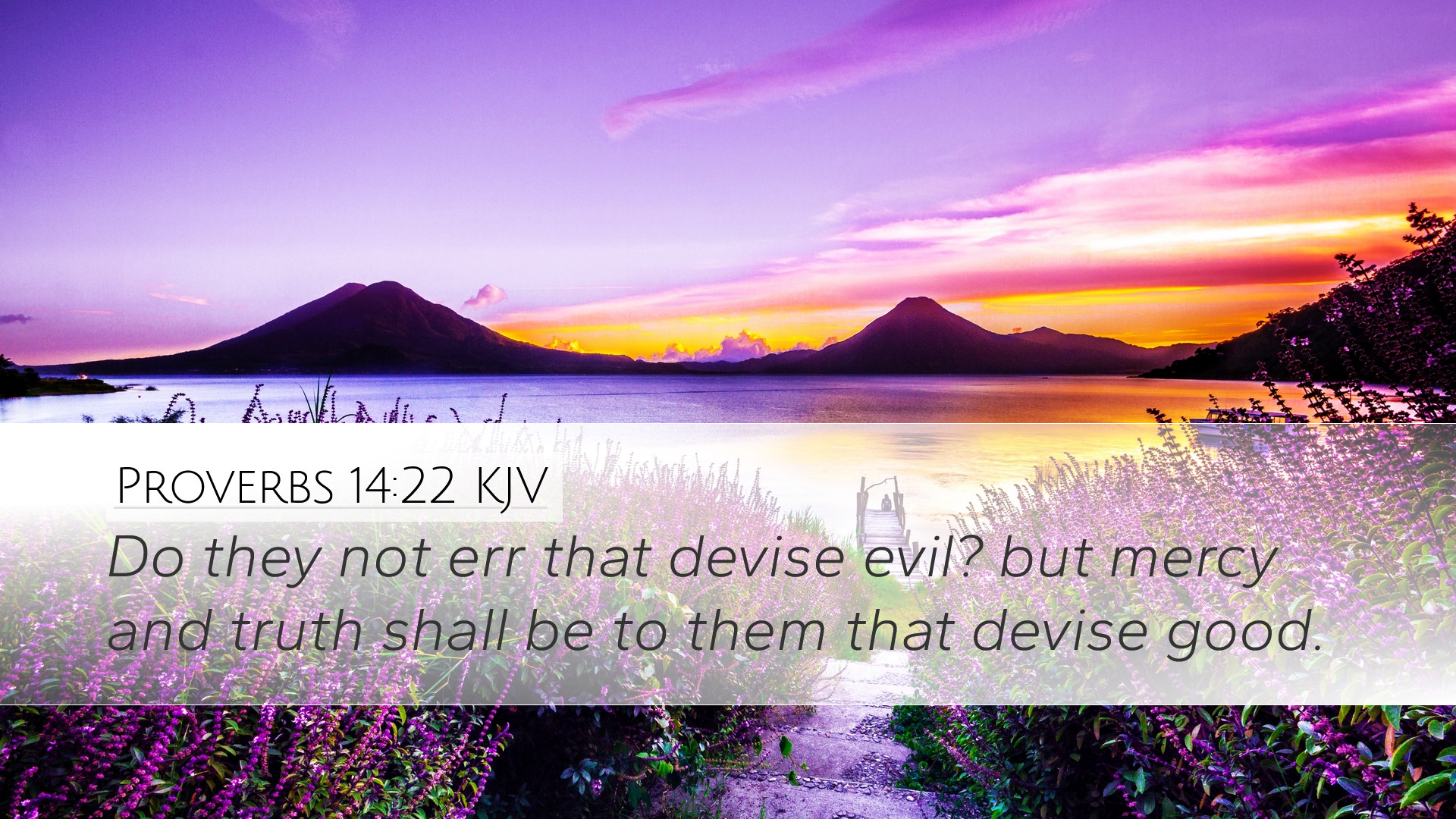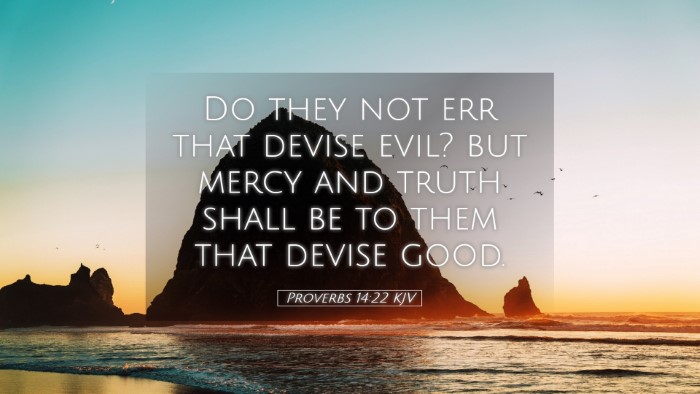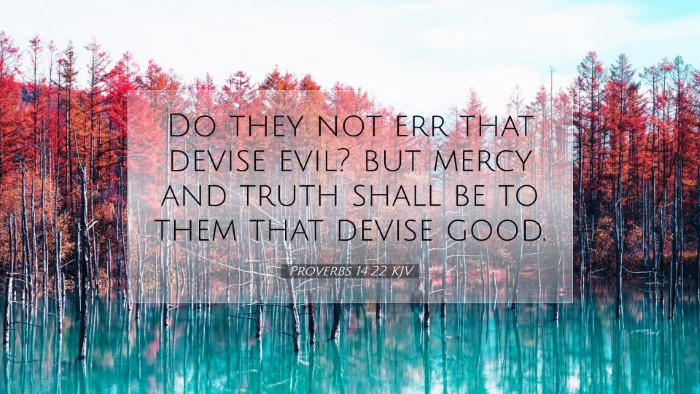Commentary on Proverbs 14:22
Proverbs 14:22 states, "Do they not err that devise evil? but mercy and truth shall be to them that devise good." This verse presents a stark contrast between those who plan evil and those who pursue goodness through mercy and truth. Through the insights of various public domain commentaries, we can better understand the implications of this wisdom.
Contextual Overview
Proverbs, attributed primarily to King Solomon, serves as a collection of aphorisms that impart wisdom on how to lead a successful and righteous life. Proverbs 14, in particular, addresses the characteristics of the wise and the foolish, emphasizing moral choices and their consequences.
The Nature of Evil Planning
According to Matthew Henry, the verse begins with a rhetorical question suggesting that those who plan evil are indeed in error. He elaborates that plotting harm or undertaking malevolent schemes is inherently misguided. Evil intentions lead individuals astray from the path of righteousness and ultimately result in their downfall. Henry posits that our thoughts and intentions shape our actions, emphasising the importance of guarding our minds against wicked schemes.
Albert Barnes echoes this sentiment, clarifying that the 'devising' of evil is an indication of the individual’s heart condition. Barnes argues that such individuals lack true understanding and live outside the bounds of God’s moral law. The error in devising evil also highlights the foolishness of pursuing temporary gains at the expense of eternal values.
The Value of Mercy and Truth
The latter part of the verse introduces a profound contrast: "but mercy and truth shall be to them that devise good." Adam Clarke emphasizes that mercy and truth are foundational virtues that characterize the lives of the righteous. Those who devise good do so with integrity and kindness at the forefront. Clarke notes that this section of the verse reiterates the promise that those who commit to living in alignment with God’s nature will experience blessings in their lives. Mercy takes on a broader meaning of compassion towards others, while truth pertains to faithfulness and conviction towards God and His principles.
The Practical Application of the Verse
To delve into practical applications, these insights can inform pastoral counseling and theological education:
- Moral Integrity: Pastors should encourage their congregations to maintain moral uprightness. Teaching that integrity in thought and action leads to divine favor could encourage a culture of goodness.
- Awareness of Intentions: Believers must be mindful of their intentions and plans. As they devise strategies in life—whether personal or communal—they should align with the principles of mercy and truth.
- Community Impact: Church leaders can stress the importance of communal ethics rooted in kindness and honesty as a testament to God’s character, presenting a counter-narrative to the “devise of evil.”
Conclusion
In summary, Proverbs 14:22 serves as a beacon of wisdom for all. It calls for introspection regarding our thoughts and plans, urging us to consider whether they align with God's intentions for mercy and truth. By drawing on the insights of Matthew Henry, Albert Barnes, and Adam Clarke, readers can appreciate the profound moral framework this verse establishes. It challenges individuals to transcend evil intentions and to actively cultivate divine virtues that not only benefit their lives but also positively influence the lives of others.


